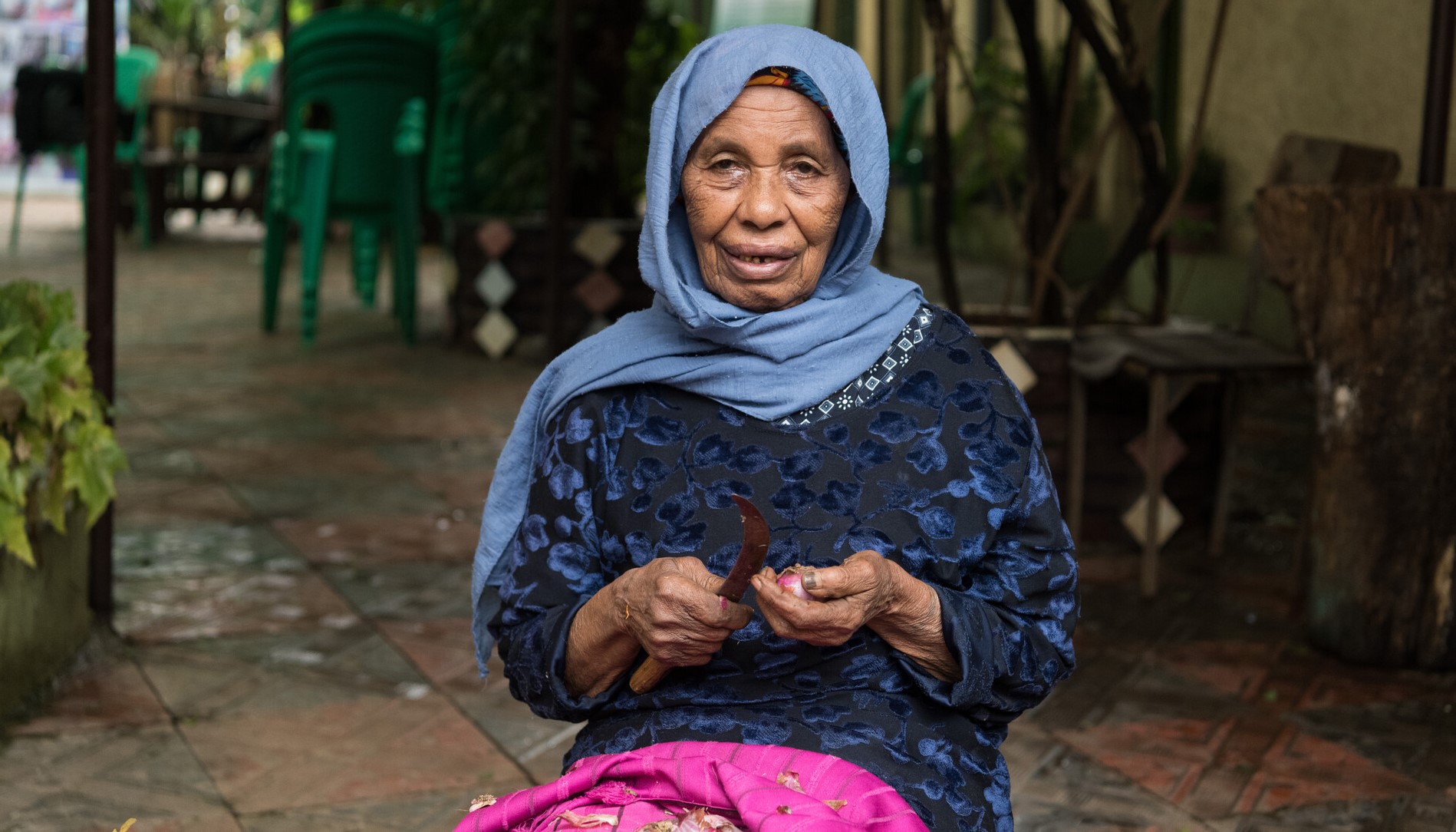This project looks at the impact of the global food, fuel and finance crisis in 10 different countries, and what this means for older people who are often overlooked, despite their very specific needs.
We now turn the spotlight on the situation of older people in Ethiopia, the fifth country in this series.
Read HelpAge International’s policy brief: “Older people’s lives at risk: Addressing the crisis in Ethiopia”.
Ethiopia staggering under the impact of multiple crises
Food insecurity in Ethiopia is one of the worst in the world. Some major events have contributed to this phenomenon.

© Maheder Haileselassie Tadese/Fairpicture/HelpAge International
Climate related shocks (prolonged droughts, unreliable rainfall, changing temperature patterns)
have decimated agriculture and triggered massive economic and livelihood losses.
have decimated agriculture and triggered massive economic and livelihood losses.
The catastrophic impacts of the COVID-19 pandemic are still felt throughout the country.
The Russia-Ukraine war has led to a rapid increase in food, fuel and fertiliser prices, compounded by falling incomes.
Prolonged armed conflict in the country has led to a major humanitarian crisis, with deadly consequences on food insecurity and famine becoming widespread. As of September 2022, 20 million Ethiopians required humanitarian assistance.
These ongoing crises have worsened poverty and further eroded people’s livelihoods. Older people can no longer afford enough food and basic necessities and are on the brink of survival.
Older Ethiopians are reeling under the repercussions
Older people’s health at risk
According to a survey by HelpAge, older people are not eating adequate quantities of food. 92 per cent of older women (as compared to 43 per cent of older men) had poor consumption scores, which indicates that they are in need of urgent interventions to improve their food security and nutrition status.
Average household incomes are decreasing, while food and fuel prices are skyrocketing.
Most households are coping by eating cheaper food (100 per cent of the survey participants), reducing the number of meals per day (97 per cent), and reducing the amount they eat per meal (97 per cent). This is having detrimental effects on older people’s nutritional and health status, making them far less resilient to future shocks.
Surge in fuel costs
A surge in energy costs has forced older people to use cheaper energy sources and limit the number of times they cook their meals.
“I paid my whole pension this month for my electric bill. I used to pay 600Birr (approx. 11USD, now I pay 1200Birr (approx.22USD)” – survey participant
No savings to fall back on
Older people’s livelihoods are severely impacted as they have very little savings to draw upon, and limited access to social protection. Only 7.3 per cent of older people in Ethiopia receive a pension, of which only 10 per cent are women.
Restricted access to credit
Access to low-cost credit could substantially enhance older people’s coping mechanisms, but formal financial institutions are reluctant to provide loans as they lack assets for collateral.
“Neither banks nor micro-finance institutions take older people as credit-worthy” – survey participant
Recommendations to respond to the dire situation faced by older people
To ease the hardships faced by older people in Ethiopia, HelpAge recommends urgent action by the Ethiopian government on the following:
- Subsidise essential goods (edible oil, wheat flour, sugar etc.) so as to reduce food price inflation.
- In 2022 the government provided 15 billion birrs (about 280 thousand USD) as fertiliser subsidies to farmers – such subsidy programmes must continue to improve the productive capacity of farmers.
- Provide better access to social protection which can be a safety net for older people to meet their most immediate needs. Income support through cash transfers and food subsidies are particularly impactful for reducing the devastating effects of these economic crises.
- Urgently work towards a peaceful settlement in the conflict affected areas.
- Jointly with the international community, provide adequate humanitarian and food assistance to affected populations of the internal conflict in Ethiopia.
- Support livelihood diversification opportunities so that older people can explore alternate income-generating activities.
- Improve the collection of data, which is broken down according to age and gender, so as to analyse the wellbeing of older people.
Read HelpAge International’s policy brief: “Older people’s lives at risk: Addressing the crisis in Ethiopia”.
